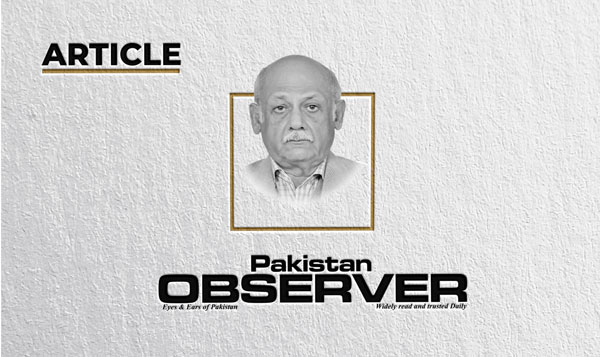Death destruction and carnage unleashed by the Taliban
PAKISTAN is once again in the eye of the deadly storm of death destruction and carnage unleashed by the Tehreek-i-Taliban Pakistan. The suicide bombing in the Malik Saad Shaheed highly secure and fortified mosque in Peshawar extinguished the lives of more than 100 innocent Pakistanis and left over 200 severely injured. Soon after there was another audacious terror attack at the Makarwal Police station in Mianwali by about 25 armed militants. According to available news in January alone, the TTP launched 46 attacks on police, CTD, army, FC and intelligence agencies in KP, Balochistan and even Punjab.
General Asim Munir and the PM Shehbaz Sharif visited Peshawar on the same day and subsequently the Corps Commanders 255th conference in the GHQ resolved to exterminate all terrorist groups from the country and made a commitment to break away from the policy of appeasement and peace talks under the Imran Khan regime and the former army chief General Bajwa. The government has demanded from the Islamic Emirate of Afghanistan to ensure the elimination of Pakistan specific terror groups from the soil of Afghanistan.
The National Security Policy was launched by the government of the day more than a year back with great fanfare but the recent ferocious attacks so successfully launched by the TTP just shows that this policy leaves a lot to be desired and highlights some serious gaps and short comings in the policy. It clearly shows the incapacity of the state to formulate an inclusive anti-terrorism policy and define the specific roles of the civil and military establishments. The success of the TTP militants also indicates the helplessness of the security agencies and the Foreign Office to have a firm control over policy matters regarding relations with Afghanistan and India.
The recent increase in the terrorist attacks points to a glaring lapse and incompetence of the security establishment. According to a report published by the Institute for Conflict and Security Studies about 294 attacks occurred in 2021. An increase of 56% was seen during the last few years. KP and Balochistan bore the brunt of the attacks especially the newly merged districts. Contrary to the wishes and expectations of the proponents of Riasat-i-Madina, the return to power of the Taliban in Afghanistan has further emboldened the TTP and they are now in no mood to spare Pakistan from their bloody onslaught in their deadly mission of death, destruction and carnage.
It is an open secret that the US pumped in billions of dollars to defeat the designs of the USSR in Afghanistan by supporting the Afghan Mujahideen and establishing the culture of Jihad. The massive effort by the US consisted of publishing Jihadi literature, grants of millions of dollars to Jihadists for training and recruitment on the outskirts of Afghanistan near the Pakistan borders, building Islamic centres in various universities and funding the plethora of Islamic seminaries or Madaris all over Pakistan. This onslaught of ideological grounding of the culture of Jihad was a great help for the USA in defeating the USSR in Afghanistan but it left in its wake the monster of religious extremism and terrorist groups that have refused to leave Afghanistan and Pakistan too.
Pakistan unfortunately was under the rule of a military dictator when the Soviet occupation of Afghanistan started. Years and years of military rule resulted in eliminating the civilian political leadership from the foreign policy arena. During this period the foreign and nuclear policy was firmly in the hands of the military establishment. The military high command was opposed to any diplomatic or political moves and favoured a hard line policy and had a rather romantic view of the conflict in Afghanistan as a holy war or Jihad. The former COAS General Mirza Aslam Beg had made it very clear that he will not allow the civilian government to control Pakistan’s Afghan, Kashmir and nuclear policy.
Both Benazir Bhutto and Nawaz Sharif were bound by the input of the military establishment on all strategic issues. The policy of using religious fanatics and Jihadi organizations for anti-India policy both in Kashmir and Afghanistan continued unabated. The establishment’s policy regarding terrorism and the gaps in the National Security Policy can be understood by major terrorist incidents. Firstly the attack on the APS in Peshawar in 2014 that united the country and resulted in the National Action Plan leading to the military operation called Zarb-e-Azb in North Waziristan and another military operation Radd-ul-Fasaad in 2017.
These momentous operations after a great deal of sacrifice and hard work by the law enforcing agencies did finally bring in a great deal of hope and peace in the country. The US sudden exit from Afghanistan in August 21021 left behind the second rule of the Taliban in Afghanistan and this new Afghan regime did nothing to prevent the TTP from using their soil for attacks on Pakistan. Since the hurried departure of the US Pakistan is once again in the line of fire and a target for the Tehreek-i-Taliban and hundreds of soldiers and civilians have paid with their lives in this new offensive launched by the TTP.










